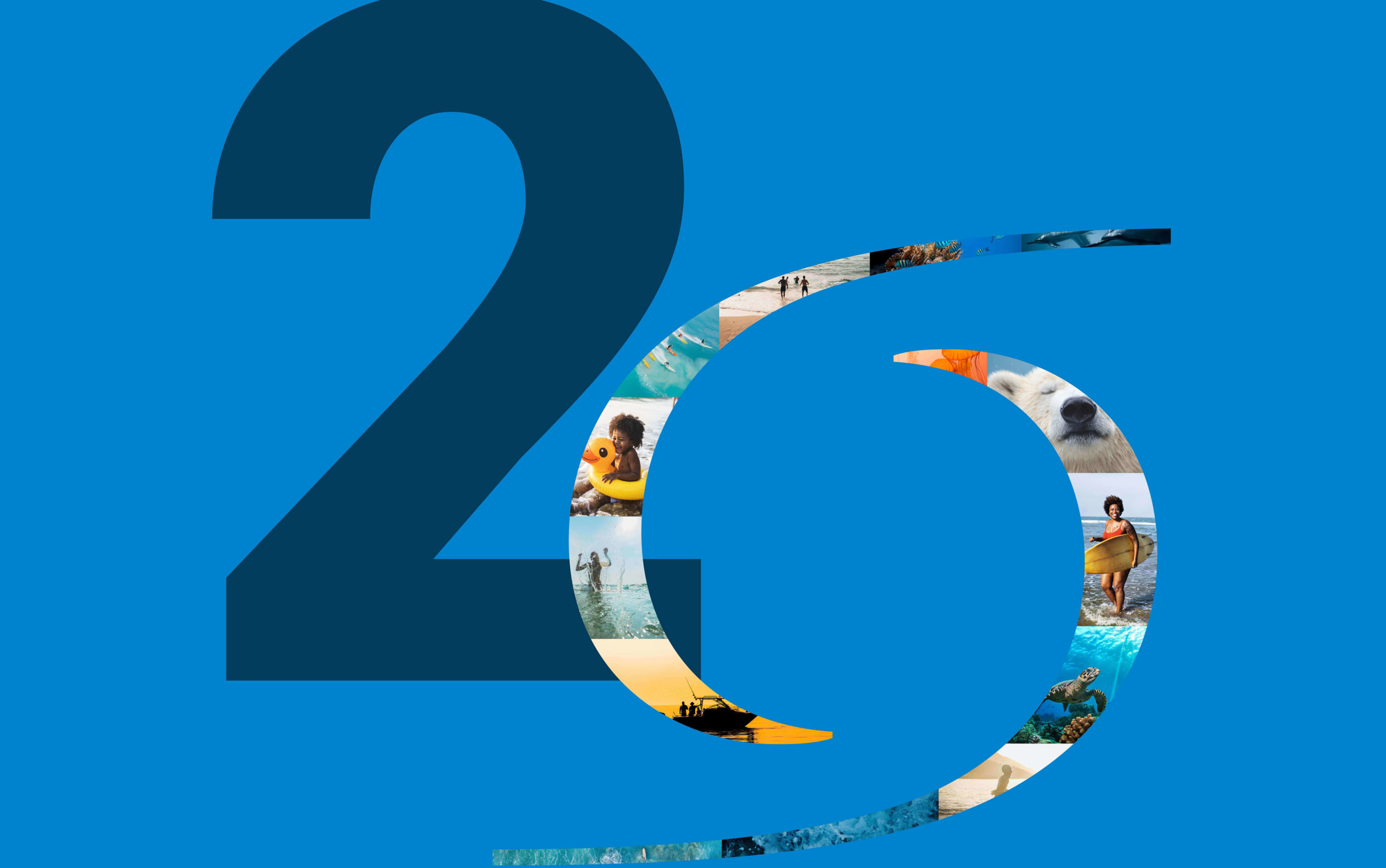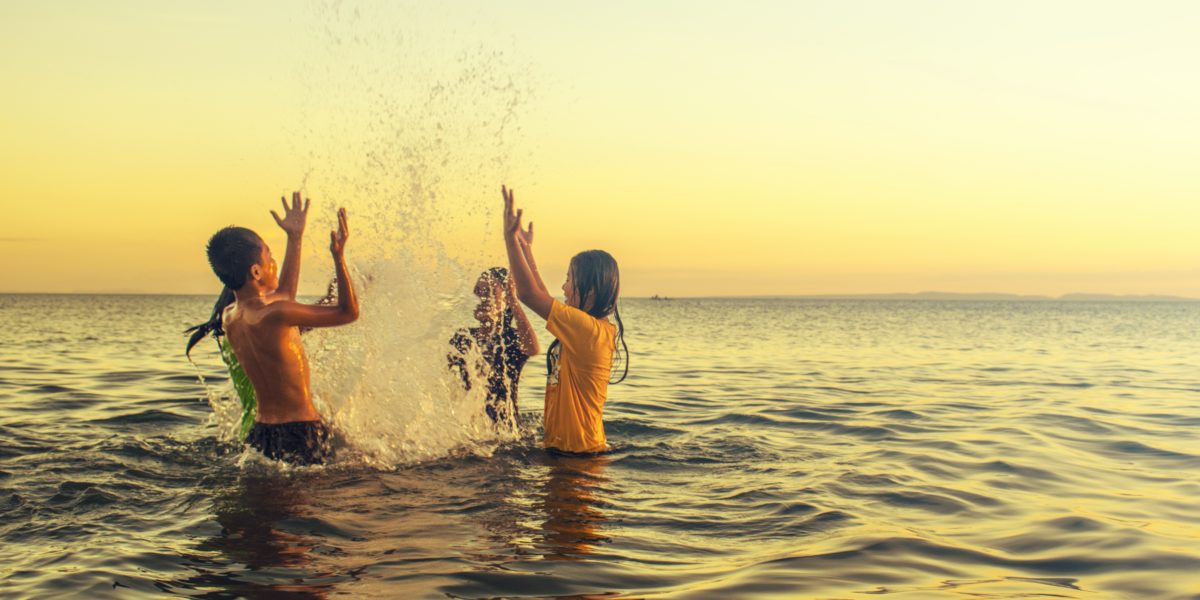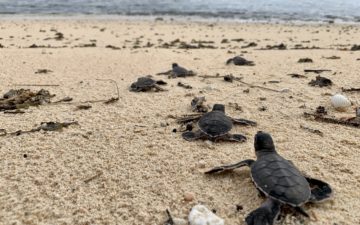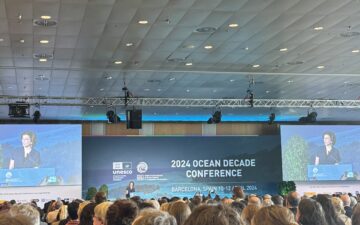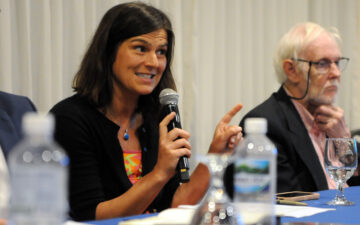Our newest annual report – highlighting updates from July 1, 2021 to June 30, 2022 – is officially out!
This was a big fiscal year for us. We added a new initiative centered around ocean literacy. We continued our focus on ocean science diplomacy and supporting island communities. We grew our climate resilience work, set our sights on a Global Treaty for plastic pollution, and fought for equitable capacity for ocean acidification monitoring. And, we celebrated 20 years of marine conservation at The Ocean Foundation.
As we look back on our growth, we’re so excited to see what we do in the years to come. Take a look at a few of our key conservation initiatives highlights from our annual report below.
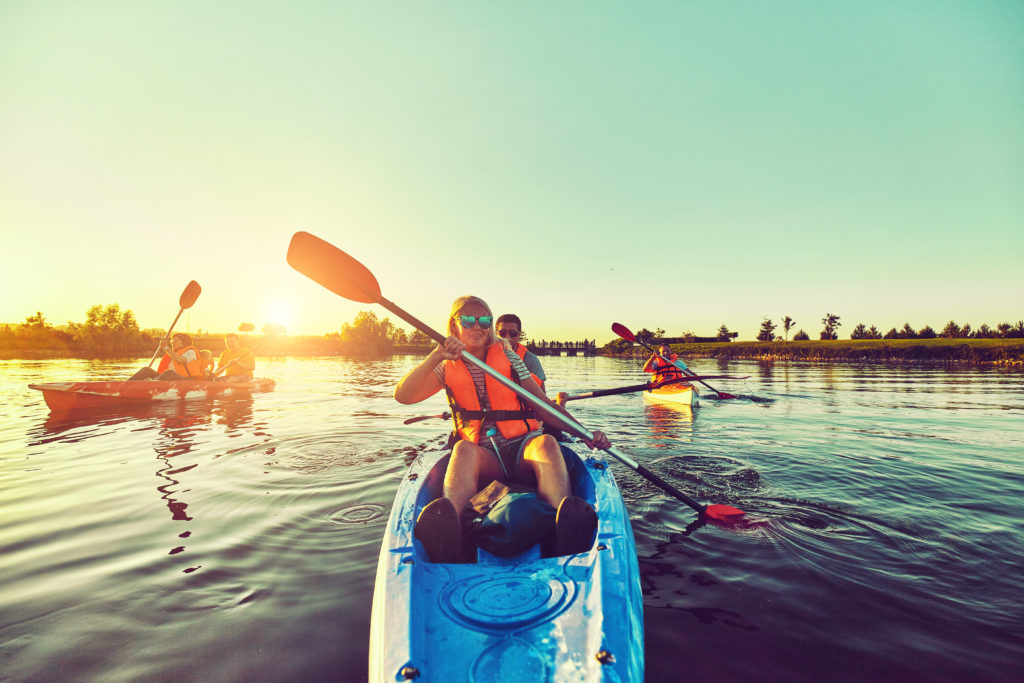
Introducing Our Newest Initiative
To properly celebrate the newest addition to our conservation efforts, we officially launched our Community Ocean Engagement Global Initiative (COEGI) this June on World Ocean Day.
Laying the Groundwork in COEGI’s First Year
Frances Lang has spearheaded our initiative’s launch as COEGI’s program officer. She has been drawing on her background as marine educator and program lead for our fiscally sponsored project, Ocean Connectors. And COEGI’s virtual learning component has centered around online platform AquaOptimism.
Partnering with Pier2Peer
We’re leveraging our longstanding partnership with Pier2Peer to recruit mentors and mentees from diverse backgrounds. This will help us build a strong network of marine education and social science experts.
Marine Educator Community Needs Assessment
We’ve been conducting surveys and interviews to understand processes that support — and barriers that hinder — workforce development for marine educators in the wider Caribbean.
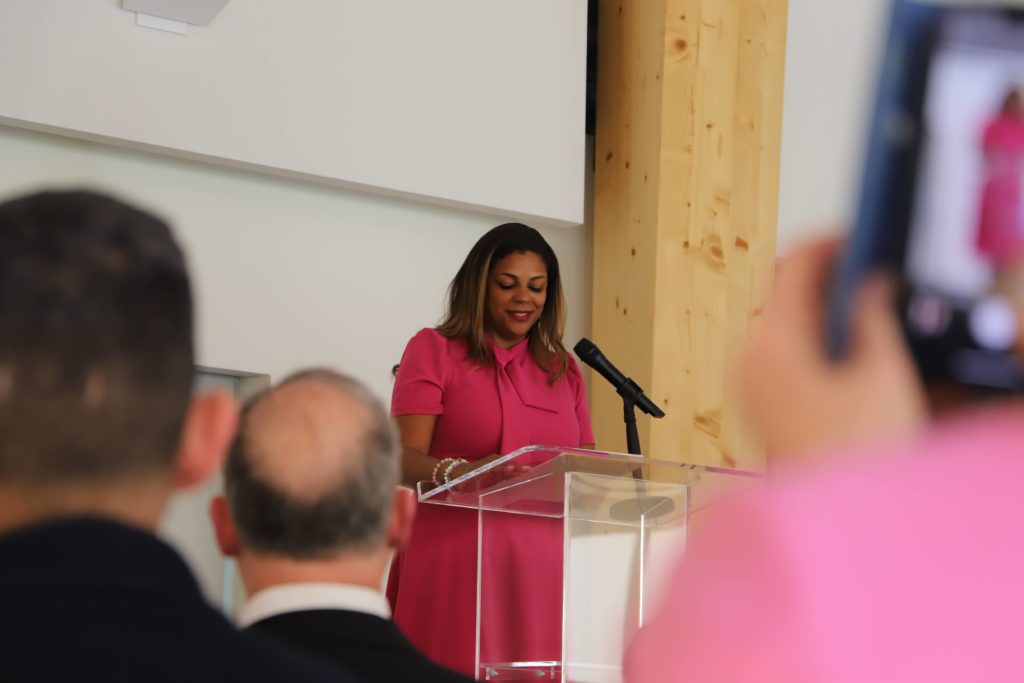
Journeying Towards a Global Plastics Treaty
We created our Plastics Initiative (PI) to ultimately achieve a truly circular economy for plastics, and two years later, we welcomed Erica Nuñez as our new Program Officer. In her first year, Erica has been deeply involved in supporting a global plastics treaty.
Governments, organizations, corporations, and the public have been rallying around addressing the entire plastics value chain with a global treaty. And as an accredited non-governmental Observer to the United Nations Environment Programme (UNEP), The Ocean Foundation has been a voice for those who share our perspectives in this fight.
Ministerial Conference on Marine Litter and Plastic Pollution
We attended the Ministerial Conference on Marine Litter and Plastic Pollution in September 2021, to make concrete suggestions for a global plastic treaty at UNEA 5.2 in February 2022. 72 government officials endorsed a Ministerial Statement signaling their commitment to support the establishment of an Intergovernmental Negotiating Committee.
UNEA 5.2
Continuing our treaty discussions, we attended the Fifth Session of the United Nations Environment Assembly as an accredited Observer. We were able to actively participate in the negotiations for a new mandate. And, the approval of the mandate by governments now allows for formal negotiations of a plastic pollution treaty to begin.
World Plastic Summit
We came together with global research leaders at the first annual World Plastics Summit in Monaco. Insights were shared for upcoming treaty negotiation discussions.
Embassy of Norway Plastics Event
To further discuss what a global plastics treaty could provide, we worked with the Embassy of Norway in D.C. to convene leaders across government, civil society, and industry this past April. We held a Plastics event where Erica Nuñez spoke about UNEA 5.2. And our other speakers gave insights into addressing plastic pollution.
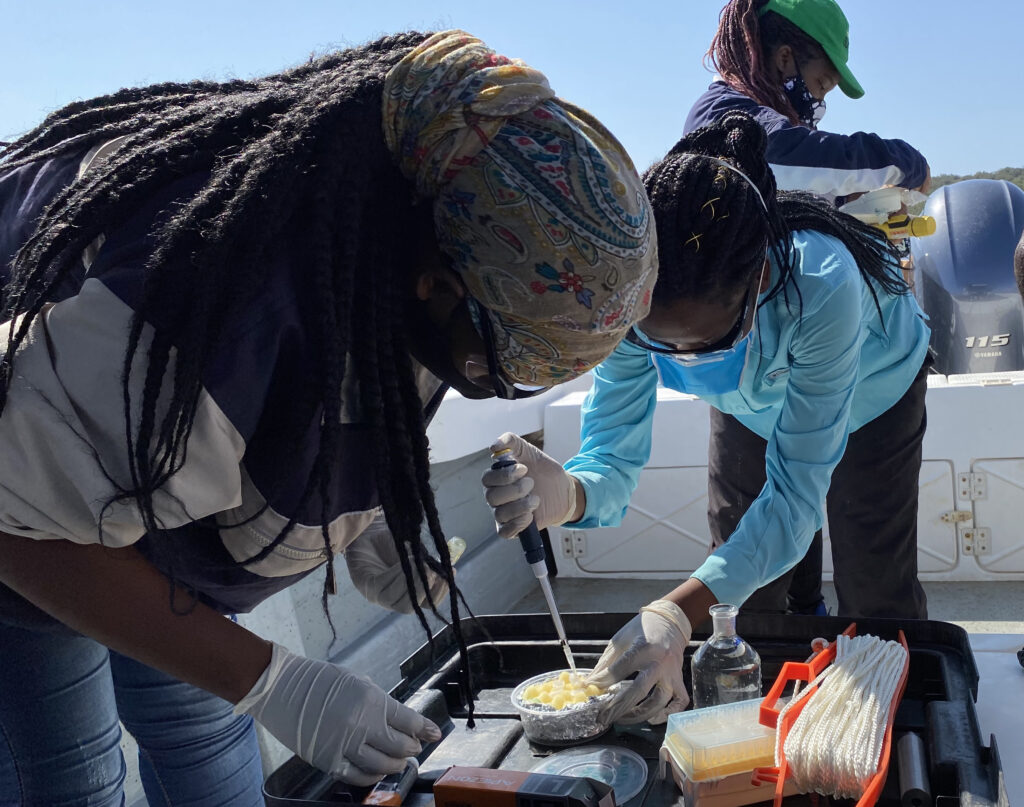
Equipping Scientists and Communities
Since 2003, our International Ocean Acidification Initiative (IOAI) has fostered innovation and partnerships to support scientists, policymakers, and communities around the world. This past year, we expanded our work in ocean science capacity to address global inequalities.
Providing Accessible Tools
We continued our partnership with Dr. Burke Hales and the Alutiiq Pride Marine Institute on the low-cost sensor, the pCO2 to Go. The 2022 Ocean Sciences Meeting was the first time we showcased our new sensor and highlighted its use in coastal environments.
Supporting Local Leadership in the Pacific Islands
In partnership with NOAA – and with support from the U.S. Department of State – we launched a permanent regional training center in Suva, Fiji to build capacity for addressing OA in the Pacific Islands. The new center, the Pacific Islands Ocean Acidification Centre (PIOAC), is a joint endeavor led by the Pacific Community, the University of the South Pacific, the University of Otago, and the New Zealand National Institute of Water and Atmospheric Research.
Together with the PIOAC and NOAA, and in partnership with IOC-UNESCO’s OceanTeacher Global Academy, we also led an online OA training course for 248 participants from across the Pacific Islands. Those who completed the course were equipped with key data management and usage practices from global experts. They also got to apply for a monitoring equipment kit and continue with hands-on training at PIOAC next year.
Bridging the Gap Between Science and Policy
COP26
In partnership with OA Alliance, we hosted the online “Workshop on Climate, Biodiversity, and Marine Protection in Latin America” ahead of COP26 in October to summarize commitments for ocean-climate action made in Latin America. On November 5th, we also joined One Ocean Hub and the OA Alliance to co-host “Exploring Law and Policy Strategies and Frameworks to Address Climate-Related Ocean Change” on UNFCCC COP26 Climate Law and Governance Day.
Vulnerability Assessment in Puerto Rico
As ocean conditions around Puerto Rico continue to change drastically, we partnered with University of Hawai’i and Puerto Rico Sea Grant to lead a vulnerability assessment project. This is the first NOAA Ocean Acidification Program-funded regional vulnerability assessment to focus on a U.S. territory. It will stand out as an example for future efforts.
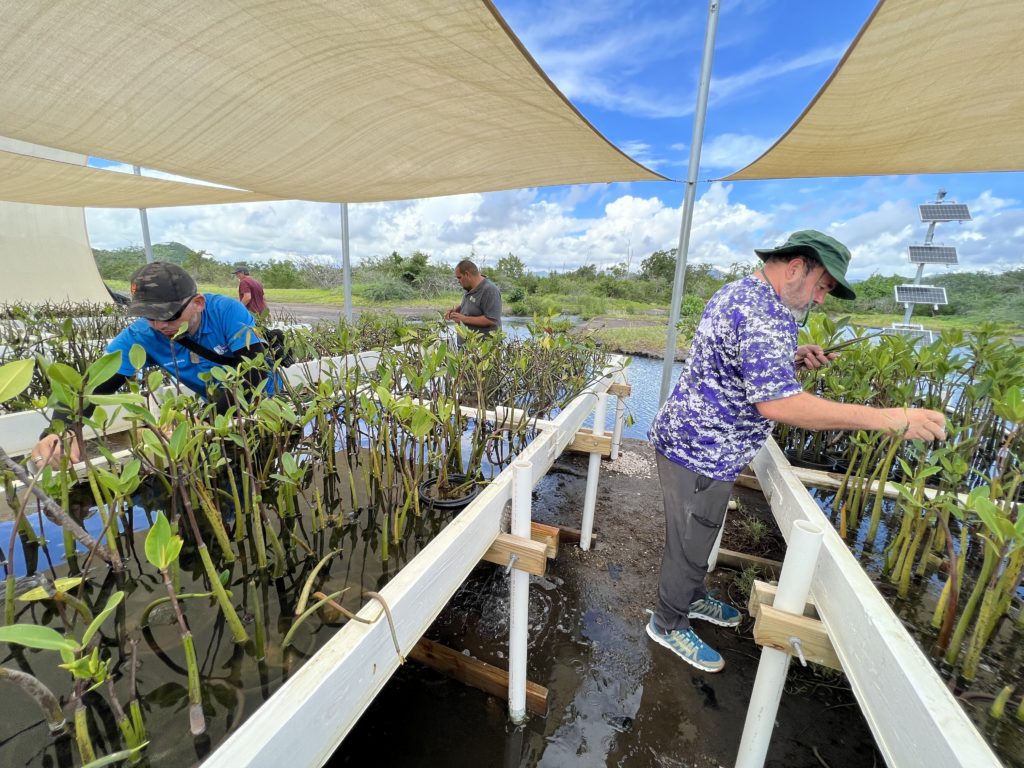
Conserving and Restoring Coastal Ecosystems
Since 2008, our Blue Resilience Initiative (BRI) has supported coastal community resilience by restoring and conserving coastal habitats, so that, despite increased resource needs and climate threats, we can protect the ocean and our world.
Building Coastal Resilience in Mexico
To restore the hydrology of Xcalak’s coastal ecosystems, we kicked off a community-based habitat enhancement project to help its mangroves flourish again. From May 2021-2022, we gathered baseline data for what we predict will be a decade-long blue carbon effort.
A $1.9M Win for Caribbean Ecosystems
In September 2021, TOF and our Caribbean partners were awarded a major $1.9 grant from the Caribbean Biodiversity Fund (CBF). This massive fund will help us carry out nature-based solutions over three years in Cuba and the Dominican Republic.
Our Coastal Resilience Workshop in the Dominican Republic
In February 2022, we held a coral restoration workshop in Bayahibe – funded by our CBF grant. With FUNDEMAR, SECORE International, and the University of Havana’s Marine Research Center, we focused on novel coral seeding methods and how scientists from the D.R. and Cuba could incorporate these techniques.
Sargassum Insetting in the Dominican Republic, St. Kitts, and Beyond
We had already been advancing carbon insetting technology in the Caribbean. With the help of CBF’s grant, our local team conducted its second and third pilot trials in St. Kitts and Nevis.
A New Brigade of Citizen Scientists in Cuba
Guanahacabibes National Park (GNP) is one of Cuba’s largest marine protected areas. Through our CBF grant, we’re focusing on mangrove restoration, coral restoration, and carbon insetting.
Jardines de la Reina, off Cuba’s southern coast, includes coral reefs, seagrasses, and mangroves. In 2018, we teamed up with the University of Havana for a multi-year effort: to document healthy colonies of elkhorn coral in Jardines, create a divers and fishers outreach platform, and bring colonies back to once occupied areas.
Blue Carbon in Puerto Rico
Vieques: Completing Our Pilot Project
This year, we focused on a feasibility assessment and restoration plan for the Vieques Bioluminescent Bay Natural Reserve, co-managed by the Vieques Conservation and Historical Trust and the Department of Natural and Environmental Resources. We visited Vieques in November 2021 for a results dissemination workshop, and to discuss assessment findings.
Jobos Bay: Mangrove Restoration
Following our mangrove restoration pilot project in the Jobos Bay National Estuarine Research Reserve (JBNERR) from 2019 to 2020, we completed the construction of a red mangrove nursery. The nursery has the capacity to raise over 3,000 small mangrove saplings per year.
Want to read more?
View our newest annual report, out now:
